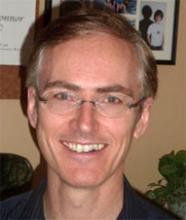What Is It
The world disclosed by the physical sciences can seem depressing. Modern physics, for example, has undermined the religious idea that the universe has a spiritual dimension. Quantum physics in particular seems to present the world as more paradoxical than rational. Is there room within – or in addition to – the world presented to us by the physical sciences for ideas such as freedom, dignity, justice, and even God? Or should these all be regarded as useful illusions? John and Ken search the heavens with Tim O'Connor from Indiana University, author of Theism and Ultimate Explanation: The Necessary Shape of Contingency.
Listening Notes
Ken and John begin the show by noting that science, religion, and philosophy have not always seemed to be at such odds. Until Galileo discovered that the Earth wasn’t the center of the universe, these fields existed very much hand in hand. Now, however, science often seems to contradict the teachings of religion. John asserts that it is science’s job to explain the nature of the universe and its origins; a religious perspective has no place in this project. Ken is not so sure, mentioning that maybe religion could supplement science in our explorations of phenomena like consciousness and free will. John concedes that some scientists are confused in their tackling of questions like whether we have free will, but philosophy and not religion should help straighten them out.
Tim O’Connor is invited to join the conversation. Ken and John ask Tim whether he thinks science should ever adjust to religion as religion has to science. Tim points out that a religious attitude of humility about our role in the world and optimism about the way the world is organized has actually had a profoundly positive impact on scientific discoveries. However, he believes that the content of science should not be affected by religion. Some religious thinkers, Tim explains, erroneously attempt to insert God into the gaps of current understanding, whereas God is more likely found at the very limits of science.
Ken wonders whether religion could set science’s agenda or define the limits of science. Tim points out that questions about what scientists should be looking for when they study free will or consciousness are up to philosophy, not religion. Our hosts and guest then turn towards a discussion of science and religion’s relationship to common sense. Ken and John posit that what some find discomforting about science mirrors what perturbs a “manifest image” of ourselves as crafted by religion, philosophy, and lived experience. Tim argues that science itself is a very common sense enterprise in its efforts to seek intellectually conservative, reasonable explanations.
John, Ken and Tim also discuss the self-correcting nature of science and religion, how other religions despite Christianity might coexist with science, and whether theism offers an explanation for things like moral value which science can not.
- Roving Philosophical Reporter (Seek to 5:30): Caitlin Esch explores how faith and science can coexist with Katherine Hayhoe, an evangelical Christian and atmospheric scientist at Texas Tech University. She also speaks with sociologist Elaine Howard Ecklund who studies the faith lives of scientists at Rice University.
- 60-Second Philosopher (Seek to 49:31): Ian Shoales speedily enumerates some of the more mysterious aspects of physics, mentioning everything from dark matter to the so-called “God Particle.”
